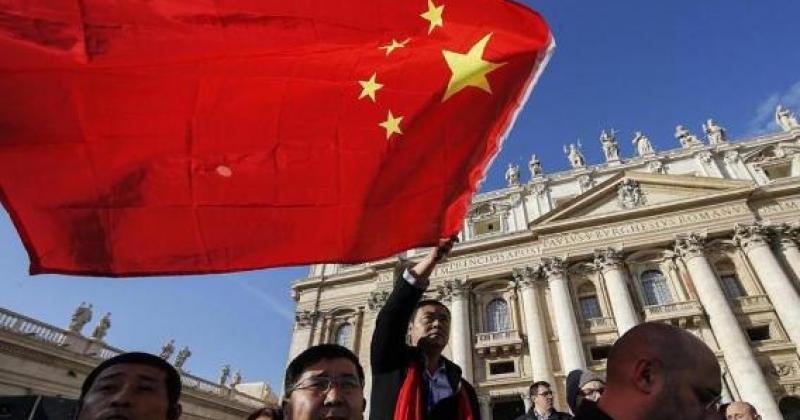For the first time, a Beijing government official spoke about the “diplomacy of art” favored by Pope Francis with the Asian Country, while he denies Chinese tourists being fined for visiting the Holy See.
The "diplomacy of art" between China and the Vatican is now a reality. A delicate operation that starts to bear fruit. Next year there will be a reciprocal exchange of works that will be exhibited in two simultaneous exhibitions. A project that the Vatican Museums have been working on for several months, and not without some criticism. For the first time, a Chinese government spokesman intervened to clarify that China stands “ready to continue its constructive dialogue" with the Holy See. And he denied news on alleged fines to travel agencies that take tourists from the Asian country to the Vatican facilities.
Lu Kang is the spokesperson for the Beijing Ministry of Foreign Affairs. During a press conference on Thursday 23 November last, when questioned about the ongoing "diplomacy of art", he said, "China's position on the development of Sino-Vatican relations is consistent and clear. China stands ready to continue its constructive dialogue with the Vatican on the basis of relevant principles and to move forward in the continuous improvement of relations between the two sides".
The reference is to the news released by Radio Free Asia, according to which the Communist Party would require the travel agencies of the country to cancel all departures of the groups of visitors going to the Vatican facilities and to avoid advertising these tours. Penalty, would be fines up to 300 thousand yuan (almost 38 thousand euros). Measures to be attributed presumably to the lack of bilateral diplomatic relations.
Spokesman Kang's reply was direct: these reports "have no ground". And he said so in response to the question whether the alleged ban was a consequence of pressure from mainland China on Taiwan's diplomatic relations.
The controversy over the above-mentioned veto to tourists arose by chance after the announcement on Tuesday 21 November of the artistic exhibitions. Part of the international press has compared this initiative to the "ping-pong diplomacy" implemented by President Richard Nixon in the early 1970s, which preceded the thaw between China and the United States. That exchange of ping-pong matches created such a positive atmosphere that the US President was able to visit Beijing in 1972.
Pope Francis also wishes to visit China. On more than one occasion, he enhanced its enormous influence in the international context and expressed his appreciation for its millennial culture, which he deepened thanks to the writings of the Italian Jesuit Matteo Ricci. At the same time, the Pope knows that the Church cannot ignore the millions of its inhabitants, almost the same number of Catholics throughout the world.
For this reason, the option of “diplomacy of art" is suggestive, a fertile ground on which to build a fruitful relationship that goes beyond the pending aspects of the diatribe between the two sides. The announcement of the exhibitions was therefore interpreted as a gesture of undeniable geopolitical value.
In the coming spring, 40 pieces will leave the Pope's museums to be exhibited in the event entitled " “The Beauty that unites us: journey into the wonderful harmony between the Chinese people and the Vatican Museums". Bronze objects, paintings of the Great Wall, paintings with religious motifs, stone statues and artworks belonging to the time of the Tang dynasty (618-907). First, they can be admired in the Forbidden City in Beijing, then in Xian and Shanghai.
In the same days, the exhibition "Anima mundi: human, nature and harmony" will open in the Vatican. The project has been successful thanks to the selection of the China Culture Investment Fund, a structure that is not closely dependent on the government, although its links with official institutions are very close.
During last week's presentation conference in the Vatican Press Office, the general secretary of the fund, Zhu Juancheng, stressed that "cultural exchange precedes diplomacy" and assured that this will strengthen "friendship between China and the Vatican", promoting "the normalization of diplomatic relations".
In response next Monday, November 27th, a press conference will be held in China for the presentation of the exhibitions, which will be attended by two officials of the Vatican Museums: Monsignor Paolo Nicolini, administrative manager, and Nicola Mapelli, head of the Museum "Anima Mundi".
